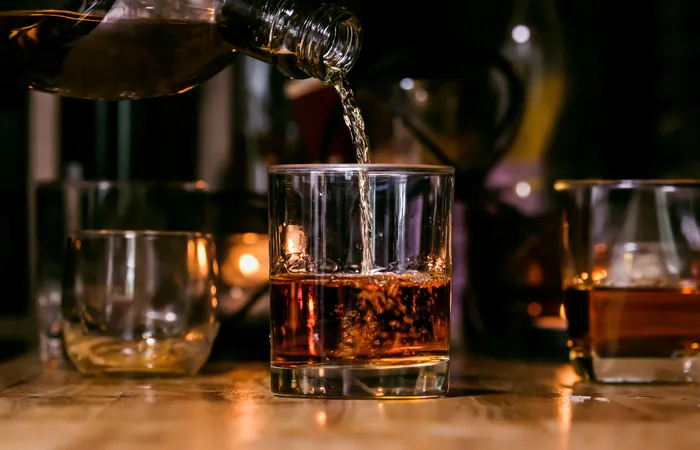
Alcohol Reduction Interventions Show Promising Results for Long-Term HIV Management
2025-01-27
Author: Daniel
Overview
A recent study published in eClinicalMedicine has revealed that reducing alcohol consumption among people living with HIV (PWH) does not negatively impact viral suppression rates. Over a year of observation, participants who engaged in a six-month alcohol reduction intervention maintained high HIV viral suppression rates.
Importance of the Study
Many individuals living with HIV often struggle with alcohol use, which is linked to poorer health outcomes, including increased risks for tuberculosis (TB), particularly in regions with high TB prevalence. Previous studies have demonstrated the effectiveness of interventions aimed at promoting healthier lifestyles among PWH. This research sought to investigate whether incentives aimed at reducing alcohol use and encouraging the adherence to isoniazid (INH)—a medication effective against TB—would influence viral suppression six months after the intervention ended.
Methodology
The study utilized data from the Drinkers’ Intervention to Prevent Tuberculosis trial, involving participants aged 18 and older who were already on antiretroviral therapy (ART) and demonstrated problematic alcohol consumption as determined by screening tests. Key exclusions were individuals with a history of active TB, pregnant women, or those on certain ART regimens that included nevirapine.
Trial Details
In this randomized trial, 680 participants were split into four groups: two receiving the intervention and two serving as control groups. The intervention involved counseling and incentives related to alcohol abstinence and INH adherence, with follow-ups occurring at three, six, and twelve months post-intervention. The primary outcome was achieving a viral load of less than 200 copies/mL, alongside low-risk alcohol use.
Results
The results were overwhelmingly positive. Out of the 619 participants with available data at the 12-month mark, an astonishing 97.2% achieved viral suppression. Specifically, 96.7% of participants in the alcohol reduction incentive group and 97.6% in the control group reported maintaining viral suppression. Comparatively, 98.3% in the INH adherence group remained virally suppressed.
Behavioral Changes
Remarkably, the study found that 71% of participants who recorded low-risk drinking patterns at three and six months maintained these healthier behaviors at twelve months. Conversely, only 6% of those who initially did not reduce their drinking eventually reported low-risk levels at the year's end.
Limitations
However, the study did have its limitations. Some participants did not provide complete data on their viral load or alcohol use at the year’s conclusion, and the reliability of self-reported alcohol usage may have influenced the accuracy of findings. Additionally, the specific effects of the intervention on individuals diagnosed with alcohol use disorder were not assessed.
Conclusion
The researchers concluded that the sustained lower levels of alcohol consumption observed at the end of the trial highlight the potential for long-lasting benefits of alcohol reduction interventions, even after financial incentives are removed. These findings are vital for public health strategies aiming to support individuals living with HIV.
Implications for Future Research
This study not only underscores the importance of addressing alcohol use among PWH but also encourages future research into comprehensive approaches for managing HIV effectively while promoting overall health and well-being.


 Brasil (PT)
Brasil (PT)
 Canada (EN)
Canada (EN)
 Chile (ES)
Chile (ES)
 Česko (CS)
Česko (CS)
 대한민국 (KO)
대한민국 (KO)
 España (ES)
España (ES)
 France (FR)
France (FR)
 Hong Kong (EN)
Hong Kong (EN)
 Italia (IT)
Italia (IT)
 日本 (JA)
日本 (JA)
 Magyarország (HU)
Magyarország (HU)
 Norge (NO)
Norge (NO)
 Polska (PL)
Polska (PL)
 Schweiz (DE)
Schweiz (DE)
 Singapore (EN)
Singapore (EN)
 Sverige (SV)
Sverige (SV)
 Suomi (FI)
Suomi (FI)
 Türkiye (TR)
Türkiye (TR)